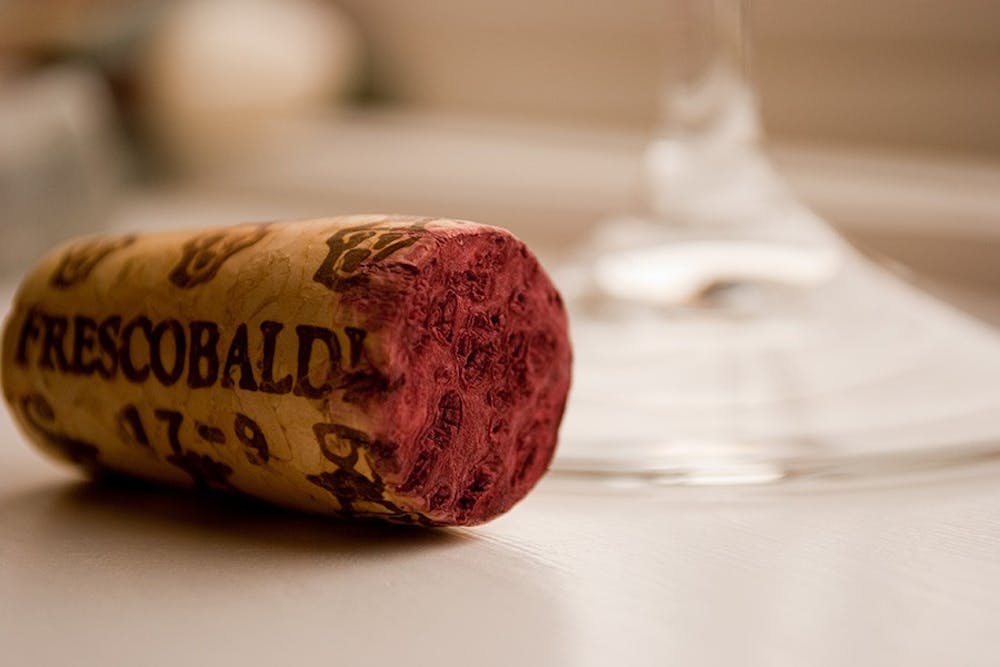Creative Commons Photo
By Alison Block
Students typically complain about having to go to their professors' officer hours. Sitting in a small room, talking with the professor one-on-one about class work is not something students generally look forward to. However, for one class at Miami, students are uncharacteristically enthusiastic about their professor's office hours: he holds them in a bar.
BIO 244: Viticulture and Enology - or, as many students have come to call it, "the wine tasting class" - is a course that studies vines, grapes, the winemaking process and, eventually, wine itself.
"It's really a lot of a horticulture course because we spent two entire weeks talking about grape growing and all the various things that go into grape growing," Jack Keegan, the professor for BIO 244, said. "[Tonight's class] was all wine making … then [later on] we'll talk about how grapes are grown and wines are made around the world for much of the rest of the semester."
Keegan covers the chemistry of wine, too, making the course truly interdisciplinary. And though most of the students in the class are seniors, and about half take it on a credit/no credit basis, they all treat it like any other academic class.
"I've probably had close to 5,000 students in this class over the years, and really … I'd say 99.9 percent of them have taken it seriously," he said. "I've never had a problem. I really have not."
Still, the atmosphere of the classroom is relaxed. Keegan's easygoing personality and passion for the subject translates in his lectures, and the students find it easy to both banter with Keegan and ask him thoughtful, educated questions.
Keegan also makes it interactive in ways other than tasting wine. Though the students have not had wine yet this semester, he provided them with grapes and
other fruits to try, so that when it comes to actual wine tasting, the students can identify the nuanced flavors in the wine.
Often, when students initially hear about this course, they assume or are told it is a wine tasting class. However, once they talk to current or past students, they learn that it is geared toward a comprehensive understanding of viticulture. This revelation did not deter senior Theo Blomquist, Accounting and Finance double major.
"As a business major, it's good [information] to know," Blomquist said.
Enjoy what you're reading?
Signup for our newsletter
Kaetlyn Veluscek, Miami alumna ('14) and one of Keegan's former students, also said knowledge of wine is a valuable trait to have in the business world.
"It won't make or break an interview, but it's good information to know that can set you apart," she said.
Veluscek said the class helped even her in her new job.
"Every few weeks [at my company] there's a casual after-work drink, where they tell me what to taste and it helps out with that."
Keegan, however, pointed out that a deep understanding of wine helps people in more than just the business world. He said he has had former students email him saying they have used his course more than any other they took at Miami.
"I cannot tell you how many of my students say to me, 'Oh Jack, my boss asked me to pick out the wine,' you know, so … it can help, obviously not in a huge way, to give students a leg up especially in their first job or two because they come across as knowing a little more, being a little more cultured," Keegan said. "Or, like some students accepted to medical school, 'Jack, I had my med school interview. We only talked about wine.'"
Keegan said a more appropriate colloquial name for the class would be "wines class" rather than the "wine tasting class," since it really does focus on the process from the first seeds to the actual taste of the wine.
Clearly, it is valuable for any student looking to set themselves apart from coworkers or competitors. Any student from any major is welcome to enroll, as long as he or she is at least 21 years of age.
"This is a skill, an enjoyment they can do for the rest of their lives," Keegan said. "And I think that's really important."




